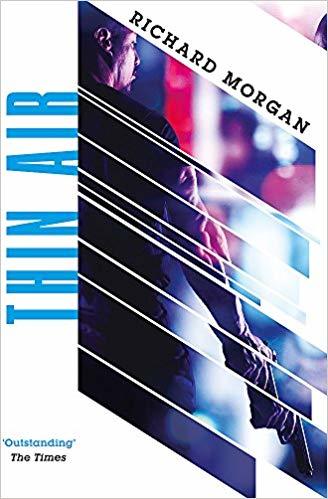What do you think?
Rate this book


Richard Morgan has always been one of our most successful SF authors with his fast-moving and brutal storylines, blistering plots and a powerful social conscience behind his work.
And now he's back, with his first SF novel for eight years . . . and it promises to be a publication to remember.
An ex-corporate enforcer, Hakan Veil, is forced to bodyguard Madison Madekwe, part of a colonial audit team investigating a disappeared lottery winner on Mars. But when Madekwe is abducted, and Hakan nearly killed, the investigation takes him farther and deeper than he had ever expected. And soon Hakan discovers the heavy price he may have to pay to learn the truth.
530 pages, Hardcover
First published October 23, 2018


{...}the effects of gravity always render spilled blood oddly tame.Now, I'm still a sucker for Morgan's gritty worldview and even grittier prose—the observation above being one striking example. For another, I really liked the not-so-gentle sarcasm of "gentle commerce," a phrase which Morgan deploys several times early on. So don't get me wrong—I enjoyed Thin Air. It just wasn't as... dazzling as I had hoped.
—Hakan Veil, p.125
"Fact remains—launch determines orbit, and Torres got a launch in life that put him low and in decay from the start."Human ballistics—deterministic; nihilist; desperately cynical... but somehow compelling, nevertheless.
—p.135
And across the drizzling sky, the first of the ‘branegels spread their almost invisible soap-bubble wings. Silver flurries of preliminary static shivered down their surfaces, like coughing to clear your throat.
It was a long night, but in the end, sure as a lobbyist giving blowjobs, morning rolled around, and the ceiling tiles flickered once more to life.